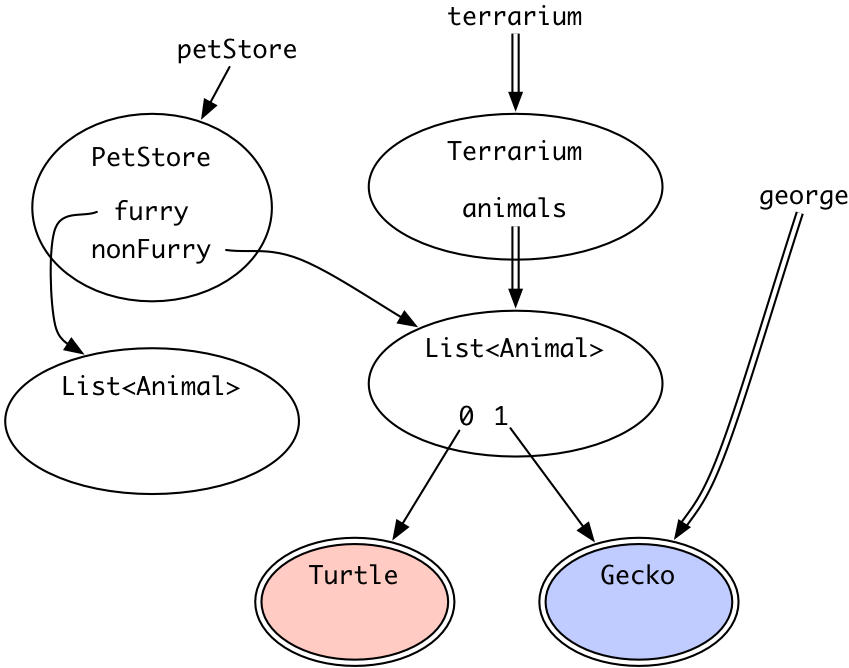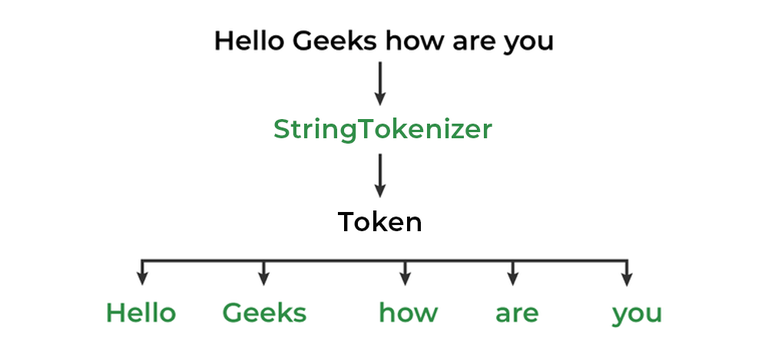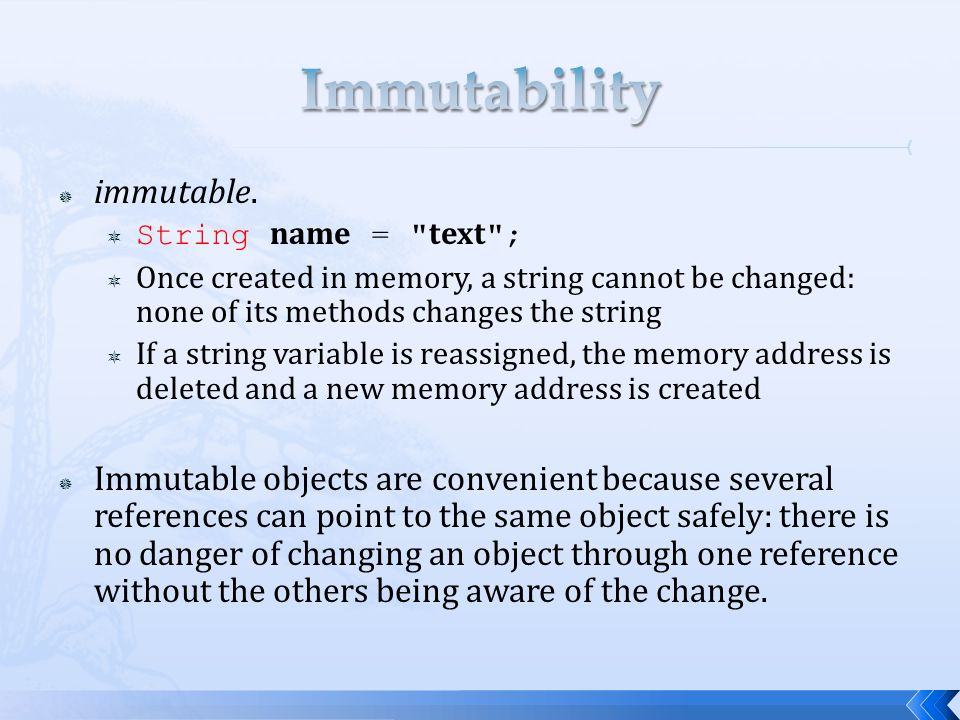Why Are Strings Immutable in Java? In-depth Analysis for Designers
Why Are Strings Immutable in Java? In-depth Analysis for Designers
Blog Article
What Is Unalterable Strings and How It Works
In the realm of programming, recognizing the idea of unalterable strings is paramount for creating robust and protected applications. Immutable strings refer to strings that can not be changed after they are produced, making sure information stability and predictability within the code. This essential concept plays a crucial duty in numerous programs languages and provides a distinct technique to handling data. By discovering the ins and outs of just how unalterable strings work, one can discover a world of benefits and opportunities that can boost the quality and performance of software application growth.
The Basics of Unalterable Strings
Immutable strings, as a fundamental principle in shows, are personality sequences that can not be changed as soon as they are produced. This implies that as soon as a string is assigned a value, that worth can not be changed. In languages like Python and Java, strings are unalterable objects, leading to various implications in terms of memory monitoring and data honesty.
Among the essential benefits of immutable strings is that they give a feeling of safety in information control. Because the material of an unalterable string can not be modified, it makes certain that the original information remains undamaged, decreasing the danger of unexpected adjustments during program execution (Why are strings immutable in Java?). This residential property additionally streamlines debugging processes, as developers can trust that when a string is defined, its value will not be accidentally modified
When a new string is produced based on an existing one, rather than customizing the original string, the brand-new value is saved separately. Generally, recognizing the fundamentals of immutable strings is essential for mastering programming concepts and optimizing code efficiency.
Advantages of Immutable Strings
Structure upon the safety and security and performance advantages of immutable strings, their benefits include boosting code integrity and streamlining concurrent shows tasks. By being unalterable, strings can not be customized after creation, which eliminates the risk of unintentional modifications in the data they keep. This intrinsic immutability makes certain that as soon as a string is produced, its value continues to be consistent throughout the program's execution, decreasing the chances of insects triggered by unexpected modifications.
Additionally, unalterable strings add to code dependability by making it less complicated to reason regarding the state of a program. Because strings can not be changed, developers can trust that a string will always hold the exact same value, streamlining debugging and upkeep initiatives. This predictability causes extra stable and reputable codebases.

Implementation in Shows Languages
Within numerous programming languages, the incorporation of unalterable strings is a basic element that impacts how data is managed and manipulated within code frameworks. The execution of unalterable strings differs across different programs languages, with each language offering its own systems to sustain this concept.

In contrast, languages like C and C++ do not have integrated assistance for immutable strings. Programmers in these languages should by hand execute immutability by enforcing regulations within their code to prevent direct modifications to string items.
Best Practices for Dealing With Unalterable Strings
When managing immutable strings in programs languages like Java and Python, sticking to ideal practices ensures safe and secure and effective information control. Among the crucial finest methods is to my latest blog post utilize StringBuilder or StringBuffer as opposed to directly adjusting strings, particularly when handling considerable concatenation operations. These classes supply mutable alternatives for string manipulation, assisting to prevent unnecessary memory allocations and enhancing efficiency.
In addition, when functioning with sensitive information such as passwords or API keys, it is essential to avoid keeping them as ordinary message in immutable strings. Utilizing secure storage space systems like char ranges or specialized libraries for managing sensitive info helps alleviate safety dangers associated with unalterable strings.
Real-world Applications and Instances
Checking out sensible executions of immutable strings in various industries discloses their substantial influence on information stability and system reliability. In the healthcare field, immutable strings play an essential duty in guaranteeing the safety and confidentiality of individual information. By protecting against unauthorized modifications website link to sensitive details such as medical documents and prescriptions, unalterable strings aid keep conformity with strict personal privacy guidelines like HIPAA.
Banks also gain from the unalterable nature of strings to improve the security of consumer data and deal records. Unalterable strings help protect against fraudulence and unauthorized modifications to monetary details, offering a robust defense versus cyber dangers and making sure the depend on and confidence of customers.

Conclusion
In final thought, immutable strings are dealt with and stable series of personalities that offer advantages such as string safety and enhanced performance in programs. They are implemented in various programs languages to make certain data stability and safety. Ideal techniques for working with unalterable strings consist of staying clear of direct adjustments and using approaches that return brand-new string items. Real-world applications of unalterable strings consist of information security, caching, and string adjustment tasks.
Immutable strings refer to strings that can not be changed after they are produced, ensuring data stability and predictability within go the code. When a new string is produced based on an existing one, rather than customizing the original string, the new value is kept individually.In languages like Java and Python, strings are immutable by default, implying that as soon as a string things is produced, its worth can not be changed - Why are strings immutable in Java?. Best techniques for functioning with unalterable strings consist of staying clear of direct alterations and using techniques that return new string things. Real-world applications of unalterable strings include information file encryption, caching, and string control jobs
Report this page